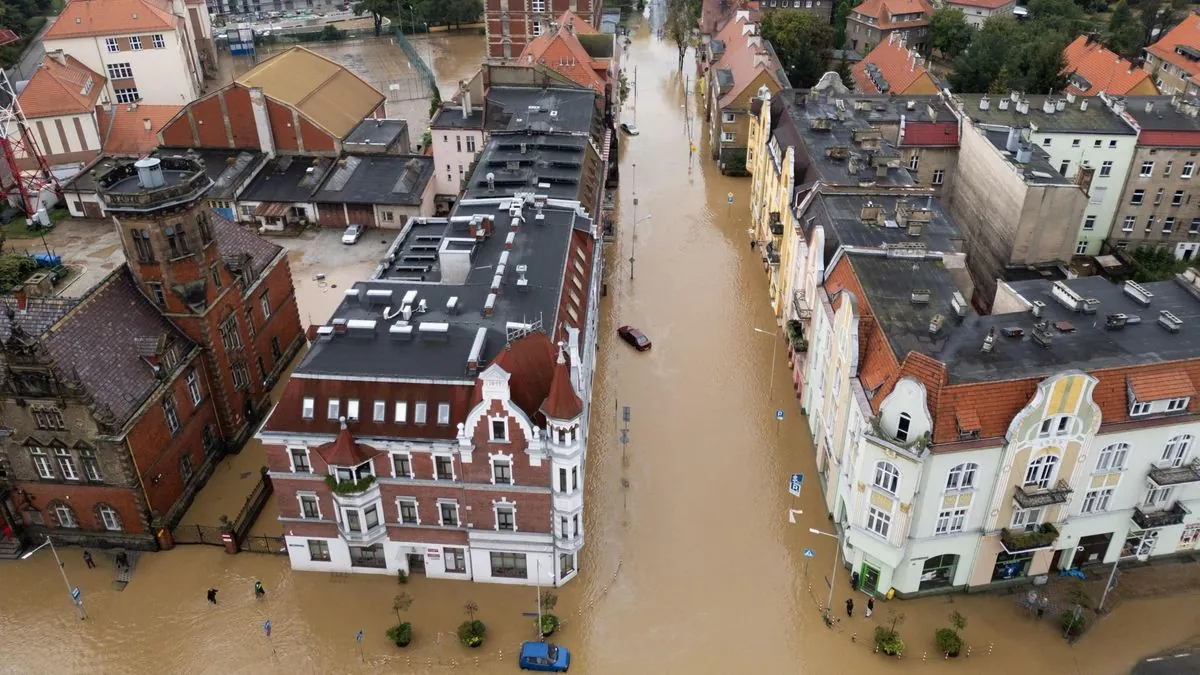Severe weather events are causing widespread devastation across multiple continents, highlighting the escalating impact of climate change. Recent incidents include extensive flooding in Europe and Africa, as well as a powerful typhoon in China.
In Central and Eastern Europe, Storm Boris has triggered what Czech Prime Minister Petr Fiala described as a "once-in-a-century flood." The storm, which made landfall on September 12, 2024, has resulted in at least 16 fatalities and forced hundreds of thousands to evacuate their homes. The flooding has disrupted electricity supply, damaged critical infrastructure, and left many unaccounted for.
Donald Tusk, Poland's Prime Minister, convened an emergency cabinet meeting on September 16, 2024, declaring a 30-day state of natural disaster in affected areas. Similarly, Viktor Orban, Hungary's Prime Minister, canceled international commitments to focus on storm response. Austrian Chancellor Karl Nehammer announced the readiness of 2,400 soldiers for relief efforts.
The European Environment Agency estimates that flooding causes annual damages of €4.9 billion in the EU. The European Flood Awareness System (EFAS) provides early warnings for potential flooding events across Europe, aiming to mitigate such impacts.
Concurrently, West and Central Africa are grappling with severe flooding that has affected up to 4 million people this year. The disaster has claimed over 1,000 lives, displaced nearly 1 million individuals, and destroyed hundreds of thousands of homes. The World Health Organization has deployed mobile health units to affected areas, but more assistance is urgently needed.
Olasunkanmi Okunola, a scientist studying flood risk management and climate adaptation, stated: "The impact of climate change is what we're witnessing right now."
In Asia, Typhoon Bebinca, the strongest storm to hit Shanghai in 75 years, made landfall on September 16, 2024. The typhoon forced the evacuation of over 400,000 people from the financial hub, disrupted air and rail travel, and led to the closure of major tourist attractions during China's Mid-Autumn Festival holiday.
These events underscore the findings of the World Meteorological Organization (WMO), which reports that weather-related disasters have increased fivefold over the past 50 years. The Intergovernmental Panel on Climate Change (IPCC) attributes this trend to human-induced climate change, which is causing more frequent and intense extreme weather events.
The Global Commission on Adaptation estimates that investing $1.8 trillion in climate adaptation from 2020 to 2030 could generate $7.1 trillion in total benefits. However, the World Health Organization predicts that between 2030 and 2050, climate change is expected to cause approximately 250,000 additional deaths per year.
As communities worldwide struggle to cope with these climate disasters, scientists continue to warn of worsening conditions in the future. The urgency for global action on climate change has never been more apparent.
"The worst is not behind us yet."
